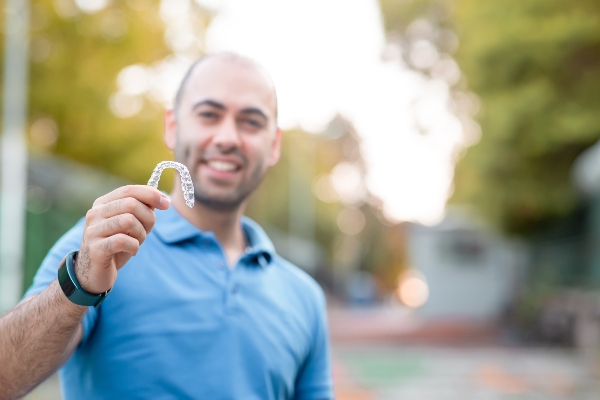 Healthy baby teeth, otherwise known as primary teeth, are critical for the future development of healthy smiles in adults. Pediatric dentistry focuses on the prevention and treatment of various dental issues in children. Regular dental care will help children get into a routine of good oral health habits that will be beneficial for their entire lives.
Healthy baby teeth, otherwise known as primary teeth, are critical for the future development of healthy smiles in adults. Pediatric dentistry focuses on the prevention and treatment of various dental issues in children. Regular dental care will help children get into a routine of good oral health habits that will be beneficial for their entire lives.
Facts regarding baby teeth
The following are four important facts about baby teeth that parents should be aware of.
1. Dental visits should start after the first tooth appears
The first primary tooth will typically emerge around the time a baby is six months old, although it can occur any time between four months to one year of age. Parents should schedule their child's initial pediatric dentistry appointment within six months of the appearance of the first baby tooth, or by the time the child turns one year old. This appointment will typically involve a cleaning as well as a thorough examination, checking for cavities and other dental problems. Parents can also receive information and advice on habits like thumb sucking and pacifier use, as well as instructions on how to practice proper dental hygiene at home.
Pediatric dentistry appointments will usually be scheduled every six months after the initial visit.
2. Baby teeth are important to future dental health
While baby teeth are temporary, they are still a crucial part of a child's future oral health. Practicing proper dental hygiene, which includes brushing at least twice a day and flossing once per day, sets children up with good dental habits that will continue on to adulthood. Biannual appointments help to detect issues such as cavities that can be treated as soon as possible. Cavities, when left untreated, can lead to infections such as dental abscesses. Abscesses can infect the permanent teeth below the gums and cause damage.
Primary teeth are also important as they help children learn to chew and speak properly. They guide the jaws to grow normally and prepare them for permanent teeth to emerge later in life.
3. Losing baby teeth early is detrimental
Primary teeth will often begin to naturally fall out around the age of 6, with the last tooth falling out around age 12. When a baby tooth is lost too early, it can cause dental problems. Baby teeth act as a spacer for permanent teeth; losing a primary tooth early may result in a loss of space and crowding of permanent teeth in the future.
4. A proper diet protects teeth
A healthy diet goes a long way in protecting teeth. Avoiding sugary foods and drinks can help prevent cavities. A nutritious diet with plenty of fresh fruits and vegetables will keep teeth healthy and strong.
Conclusion
It is imperative that baby teeth are properly cared for. Regular pediatric dentistry visits, as well as good oral hygiene and a nourishing diet, can help children have healthy smiles as adults.
Request an appointment or call Precision Orthodontics & Pediatric Dentistry at 703-391-8800 for an appointment in our Reston office.
Recent Posts
Dental care for children often requires unique approaches tailored to their developing dentition and growing independence, and one type of care that they can receive is pediatric dental X-rays. However, parents often wonder whether exposing young children to X-rays is more harmful than helpful, so it is common to have questions about this type of…
A kid friendly dentist has many important jobs in your child’s oral wellness. Aside from cleaning your child’s teeth at semiannual appointments, the dentist will check on jaw and bite issues. As your son or daughter gets older, the dentist will also check on how the permanent teeth are coming in. There are ways the…
Cavity treatment for kids can help children maintain their long-term oral health. Tooth decay in children can lead to discomfort, infection, and long-term dental complications if left untreated. Fortunately, early detection and appropriate pediatric dental care can prevent complications and support healthy oral development as children grow up.Cavities develop when bacteria in the mouth feed…


